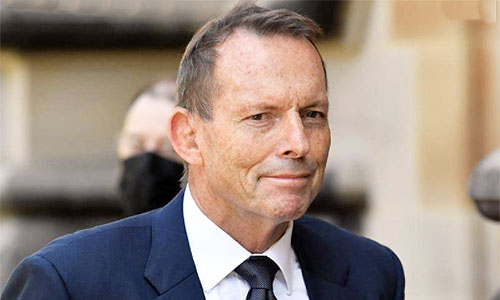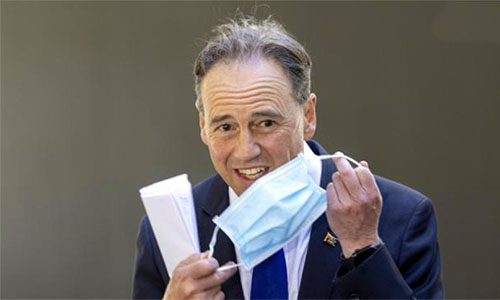
by PAUL COLLITS – THE Liberal Party is split in so many different directions as to be almost meaningless.
No Liberal-led government has ever played to its strengths in office – and very few have played to them in opposition. No one other than Malcolm Fraser and Tony Abbott.
- The Libs need to get tough if they are to regain office anywhere, including Canberra.
- The NSW Liberals have proven to be incompetent, self-obsessed liars and spivs.
- Thank goodness Peter Dutton is lifting the Liberals’ game. He’s now playing ace after ace.
Increasingly, in opposition, the Liberals make themselves small targets, sometimes barely turning up.
The Right-of-centre world, for want of a much better term, can be broadly divided into those for whom politics, political Parties, leadership, winning elections and so on, are vitally important; and those who believe that the world is run by unelected elites. So all of the other stuff – minutiae – is of next-to-zero consequence.
PUPPETS
Let us, for one moment, set aside the utter futility of analysing everyday politics in a global system – where elected governments count for very little other than being puppets of large, remote forces – and pretend that it all matters.
Assume that we live in a thriving democracy, and that voting and the colour of the government make a difference.
Which brings us to the Liberals in opposition and the forthcoming Dunkley by-election.
The Australian Electoral Commission data for the last election shows a two-candidate-preferred result of about 56 to 44 for Labor, with a swing of around three per cent. A healthy majority, then.
After the March 2 by-election, perhaps the margin will not be so healthy.
March 2 is also Sydney’s gay day. Where, no doubt, Airbus Albo and half the NSW Liberal Party will be taking selfies. Fresh from the PM’s opening of the gay museum and his Katie Perry and Tay-Tay diversions.
The deeply unimpressive Simon Benson at The Australian has jumped onto the Dunkley bandwagon, in his story about the nefarious (he thinks) activities of Advance Australia on behalf of the Liberal National Coalition.
Benson seems blissfully unaware that third Party involvement in elections is as old as the hills, and that all sides do it. Has he not heard of trade unions, for example? Or is he simply being disingenuous?
Setting that aside, there would be one word of advice that I would give the Liberals, for whom I have next to zero sympathy and in whom I have next to zero confidence.
PLAYBOOK
It would be to take a leaf out of the England cricket team’s playbook. Since the arrival a couple of years back of Brendon McCullum as coach and Ben Stokes as captain – neither of whom are English, by the way – Old Blighty’s team has shrugged off years of indifferent form, lots of losses and (often) stodgy, defensive play.
Some think this way of playing cricket is new. It isn’t. Whenever someone suggests it is, simply tell him to insert “Bradman” into his favourite search engine.
Nor is it always successful, since, like these past weeks in India, the Poms sometimes get flogged by a better team or are defeated through their own incompetence or malfeasance at the batting crease.
England’s new-found brand of cricket even has a special name. It’s called “Bazball”, after the England (Kiwi) coach’s nickname. He hates the term.
It is even in the online Collins dictionary. And you cannot tune into any Test match involving England without it being an almost constant topic.
The term was coined by a cricket writer called Andrew Miller.
Bazball is normally taken to mean aggressive, positive cricket. But it also involves self-confidence bordering on hubris, having faith in players, even when they occasionally fail, casting fear aside, playing with panache, taking positive decisions and having a close and strategic understanding of the tempo of the game. Knowing when to press the accelerator. Desiring to win big. Bringing the crowds back. Entertaining the punters.
Well, the Liberals should play Bazball if they ever want to regain office anywhere, including Canberra, and then achieve something meaningful for Club Sensible voters and for the Liberals’ own base when they get there.
No Liberal-led government has ever really played Bazball in office – and very few played it in opposition. No one really other than the already mentioned Malcolm Fraser and Tony Abbott.
Increasingly, in opposition, the Liberals (not to mention Airbus Albo) make themselves small targets, sometimes barely turning up. See also under “Biden”, who only wins because he cheats.
LIARS & SPIVS
The NSW Liberals have proven to be incompetent, self-obsessed liars, spivs and crooks over twelve long years in Macquarie Street. Seemingly, from the latest round of factional in-fighting, they still are.
What might Liberal Bazball look like?
Well, just look at the No campaign for the Voice. They had big hitters, in Senator Jacinta Price and Warren Mundine.
They had strategic tempo change, as shown by Federal Liberal Leader Peter Dutton who, indeed, did find his voice.
They had clarity of purpose, as exemplified by David Littleproud, shaping as the Nats’ best leader – admittedly, against pretty ordinary competition – since John Anderson. They had attack options, with Gary Johns as the occasional pinch hitter, for example.
Look also at Tony Abbott, who, in opposition, came out swinging, and was concise and clear. He made himself a smallish target, but not by saying and doing nothing.
He batted both his opponents, Gillard then Rudd, out of the attack. He forced changes to the field. He had Labor on the run – and panicking. Yes, hard to believe now, they changed leaders and went back to Rudd.
Abbott made positive decisions, even though many of his promises were to not do things. He promised to “stop the boats”. Then he did. The British Tories can’t. Labor wouldn’t.
But perhaps the best example of Liberal Bazball is occurring as we speak.
It is Peter Dutton’s nuclear energy masterstroke, matching his deft playing of Albo over the Voice.
The Australian newspaper reports: “Majority support nuclear for energy security: Newspoll.
“Most younger voters would back plans to replace coal-fired plants with small modular nuclear reactors, Newspoll figures show.”
It has been an unexpected masterstroke, too. He is now playing ace after ace.
There will be uneasy clenching of buttocks across the Labor Party, what with its rusted-on, seventies-Leftie-style opposition to all things nuclear.
OOZE
As it watches a weird consensus forming between Gen Z’ers who ooze fear of climate emergencies from every pore, and sensible, older people who simply don’t want blackouts, their energy cost spiraling and the destroyed economy that will be the inevitable result of having a coal-free plus nuclear-free energy supply.
Now that is Bazball politics, Peter Dutton.
In the words of the fictional FU (British PM Francis Urquhart), it is beyond time to “put a bit of stick about”.
But there is more to this Liberal opportunity. The electorate would jump at it, because its faith in the current polity and the quality of the ruling class is close to non-existent.
Many writers, including former Central Intelligence Agency operative Martin Gurri, author of The Revolt of The Public and the Crisis of Authority in the New Millenium, speak of the entirely to-be-expected disdain of the people these days for the ruling class – certainly for the puppet-politicians – and a lack of trust in government, corporations, media and other, formerly respected civil society institutions.
We saw this in Brexit, Trump’s 2016 victory, the Robert F Kennedy Jr phenomenon, the rise of alt-politicians in Europe (England, France, Germany, Italy, Hungary, Poland), the fact that up to one third of Australian voters now cannot bring themselves to support either of the major Parties, and the massive followings garnered by new-media stars, like Joe Rogan, Tucker Carlson and Alex Jones.
Yes, we pathetically obeyed the State during COVID, but today the take-up of boosters is in single digits. All this connotes push-back against the establishment.
(Gurri’s excellent online interviews and talks can be found with ease, for example, here he talks about the themes in his book.)
In 2021, an Institute of Public Policy Research study showed historically low trust in politicians in the UK – and the USA.
And it isn’t only the UK where there is evidence of widespread disillusion. And didn’t just happened yesterday, either.
Back in 2012, John Keane, a professor of politics, noted, with particular reference to young people: “Parliaments are, well, worse than talk shops. Especially worrying, many young people say, is the present-day dramatic jump in the use of executive powers. In a whole range of matters, from drones and nuclear weapons to imposed fiscal austerity and environmental protection, decisions of basic importance to the lives of millions of people are being decided (or blocked) arbitrarily, often behind closed doors in remote cross-border settings.”
DISILLUSIONMENT
Kean’s article was titled “the politics of disillusionment”.
Late last year, the Speaker of the House of Representatives asked: “Is the political system letting down the Australian public?”
The Speaker continued: “We have a distrustful and disillusioned electorate, a professionalised political system that, however, frequently alienates the sort of people we should be attracting into parliament, a public service that has been found wanting, an excessively secretive approach to information and accountability, media that are too often driven by clicks and ratings, and social media that debase political discourse more often than elevate it. All this invites the questions: is our democracy failing us and how can it do better?
“Today’s voters don’t think much of the political system as it is operating, or its participants. Trust in politicians and political institutions is low. Some voters are hostile to politics and those in it; a lot are unengaged, except at elections.”
So, they do know we hate them.
Mark Evans of the Democracy 25 Project says: “In general, Australians are great champions of democratic values but are distrusting of people in government and have limited confidence in the ability of governments of whatever form to address major public policy concerns.”
In 2018, Evans noted: “The level of democratic satisfaction has decreased steadily across each of the past four governments from 86 per cent in 2007 (John Howard), to 72 per cent in 2010 (Kevin Rudd), 72 per cent in 2013 (Tony Abbott) and 41 per cent in July 2018 (Malcolm Turnbull).
And that was before the COVID dictatorship and the latest attempts by governments to destroy economies through suicidal net-zero rubbish – or to ramp up aggressive totalitarianism through surveillance policy.
There are many groups with gripes, of course. But, decidedly, they include those who felt let down by the major Parties specifically.
On the Right, that would be the Liberal Party. In other words, we-the-people, the deplorables, the outsider class, the insurgents, the passive and active dissidents, are ready to muscle up to the establishment. We are ready for (ghastly jargon alert) a step-change at the top.
Perhaps the voters need to play Bazball, too.
We (voters) are, indeed, like the disillusioned cricket follower. Staying away from live cricket in droves (in many places, though not all). Lamenting the wokedom and tyranny of cricket corporates.
BASTARDS
We are hungry for some positive play on the field. Willing to cheer for someone “having a crack”. Wanting to shed our disenchantment and to give the bastards one more chance.
We are receptive to a positive message, a sense of direction, clarity and the likelihood that the leaders will actually do what they say they will, and not do things for which they have no mandate.
A fresh approach might just work. Lose the fear. Be unafraid. Have an agenda.
As Martin Gurri says: “Merely opposing the Left’s hegemonic power is not enough.”
Indeed. What Gurri might be suggesting here is political Bazball. If you are wishy-washy in opposition, what hope have you got for meaningful time in government?
We know how hard the latter task is, with the establishment determined to maintain its control and using ruthless means to do so. In which case, what hope does an insurgent government have?
A vast apparatus of control – an octopus-like conglomerate of institutions that includes the federal bureaucracy, the news media and the digital platforms – has been deployed to stop the populist wolf from crashing through the door.
And Florida Governor Ron DeSantis asks: “Do we govern ourselves through our constitution and through our elections, or do we have these masters of the universe occupying these commanding heights of society?”
Well, there are models of successful insurgency (Hungarian PM Viktor Orban, for one, Elon Musk, in the corporate sphere and Ron DeSantis himself), but for the moment, merely growing some cojones in opposition would make a fine start.
And it beats simply hanging around out in the middle, doing little and waiting to be knocked off.
The getting-on-the-front-foot tactics in Dunkley might be the model, as Simon Benson suggests.
Political Bazball isn’t new, of course, either. But it has been shown to work whenever tried. And it brings back the punters.
LANDSLIDE
As the landslide victories of Malcolm Fraser (1975) and Tony Abbott (2013) attest.
(Yes, I realise that Labor’s Bill Shorten tried a radical approach in 2019, with aggressive campaigning and vividly spelled out promises, and that did not work. I wouldn’t call Shorten’s approach Bazball, though. It was more like policy hara-kiri, given the dreadful policies with which he went to the election.)
For those rusted-on cynics (realists?) who think none of this really counts, and incline to the view that all that matters is what the puppeteers are doing, ignore the above and vote for the United Australia Party, the Liberal Democrats or One Nation. Or noone.
Yet as long as the micro freedom Parties continue to flounder electorally, despite or perhaps because of their resonating realism and attraction for outsiders, it behooves us to demand better performance from the Liberals.
Sadly, until the micros climb onto a higher and sustained voting plateau, and win seats in numbers, we are stuck with the Libs.
Better, then, that they play Bazball and govern like they mean it, rather than sticking to their old swinging-in-the-breeze, woke and timid ways.PC













I note Mr. Collits hails from Lismore. His comments on the triumphs of Malcolm Fraser indicate he may be travelling often to nearby Nimbin to enjoy their greatest cash crop.
Gough Whitlam and his chaotic crew with their radical socialist policies were thoroughly rejected by the electorate. Malcolm Fraser was the beneficiary of the punters disdain.
Fraser was voted to the Lodge in the belief he would reverse Whitlam’s disastrous course. He did nothing. Sweet FA. The horror of the Whitlam fiasco not forgotten, the voters returned him twice as there was no alternative other than the lunatic left.
It was Fraser that against all advice allowed Lebanese Muslims fleeing civil war to emigrate to Australia under relaxed migration provisions in the late 1970s.
We are still suffering today from Fraser’s intransigence. Hands down our least active and most damaging PM.
John Howard engineered the move left by the Liberal Party with his broad church mantra and it’s yet to recover. The influence of the Alphabet people, lefty bedwetters and climate catastrophists the likes of Matt Kean made the liberal offer almost indistinguishable from the ALP. Why vote Labour light when you can get the real thing? Hence the growth of the minor right.
Hallelujah for the arrival of Jacinta Price and Warren Mundine for the Voice referendum. Dutton offered resistance and these two clearly articulated why it was a disastrous and divisive concept.
The Dunkley result was disappointing however Dutton made progress. He’s playing the long game. Remember Dunkley is in the Peoples Republic of Victoria.
Libs are now to labor/lite & have no hope unless they drain the swamp & return to true conservative values, AKA Tony Abbott
Bill Shorten’s failure in 2019 was principally due to his being Bill Shorten. Seen as dishonest and untrustworthy. The people who hate Dutton and Abbott also acknowledge their positions remain generally consistent.
The lingering rape accusation wouldn’t have helped Shorten, either.